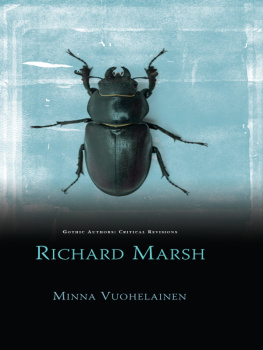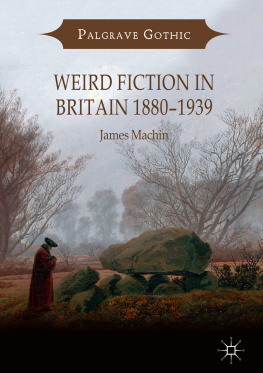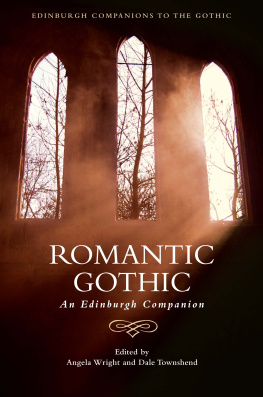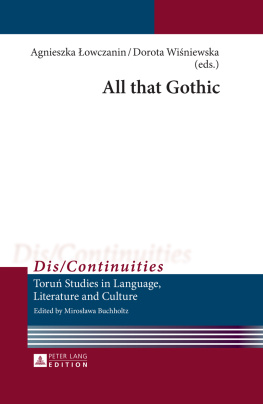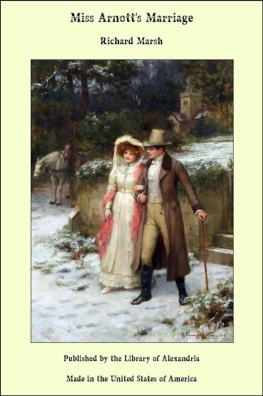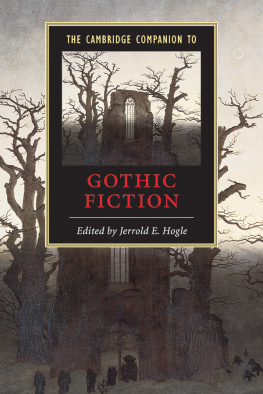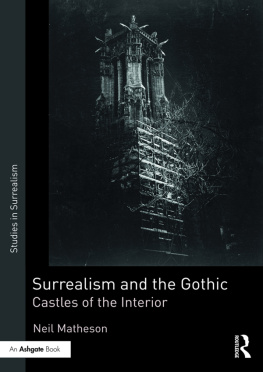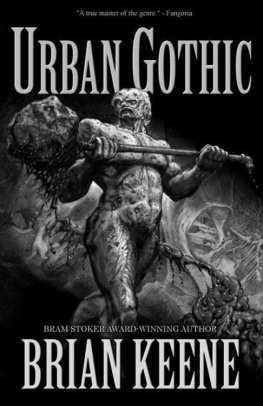SERIES PREFACE
Gothic Authors: Critical Revisions is dedicated to publishing innovative introductory guides to writers of the Gothic. The series explores how new critical approaches and perspectives can help us to recontextualize an authors work in a way that is both accessible and informative. The series publishes work that is of interest to students of all levels and teachers of the literary Gothic and cultural history.
SERIES EDITORS
Andrew Smith, University of Sheffield
Benjamin Fisher, University of Mississippi
EDITORIAL BOARD
Kent Ljungquist, Worcester Polytechnic Institute, Massachusetts
Richard Fusco, St Josephs University, Philadelphia
David Punter, University of Bristol
Angela Wright, University of Sheffield
Jerrold E. Hogle, University of Arizona
GOTHIC AUTHORS: CRITICAL REVISIONS
Richard Marsh
Minna Vuohelainen

Minna Vuohelainen, 2015
All rights reserved. No part of this book may be reproduced in any material form (including photocopying or storing it in any medium by electronic means and whether or not transiently or incidentally to some other use of this publication) without the written permission of the copyright owner. Applications for the copyright owners written permission to reproduce any part of this publication should be addressed to the University of Wales Press, 10 Columbus Walk, Brigantine Place, Cardiff CF10 4UP.
www.uwp.co.uk
British Library CIP Data
A catalogue record for this book is available from the British Library
ISBN 978-1-78316-339-7
e-ISBN 978-1-78316-341-0
The right of Minna Vuohelainen to be identified as author of this work has been asserted in accordance with sections 77 and 79 of the Copyright, Designs and Patents Act 1988.
Cover design: Clifford Hayes
Cover illustration: Lucanus cervus. Life on white/Alamy.
In memory of Pirkko Vuohelainen (19492014)
C ONTENTS

Why Richard Marsh?
Richard Marsh (Richard Bernard Heldmann, 18571915) was one of the bestselling popular authors of the end of the nineteenth century and the beginning of the twentieth. Commended during his life as a master of his craft, in command of considerable constructive skill and an unusually pleasant and lucid writing style, he marshalled an ingenious series of plots and counterplots, devices, and mysterious inter-relations in his fiction.
Marshs fiction continued to appeal to the reading public into the inter-war years, which also witnessed film and stage adaptations of The Beetle, but from the Second World War until the 1990s his work was all but forgotten, possibly because of the difficulty of translating his bestselling novel into an appealing cinematic format. In 1966, his grandson Robert Aickman, a fine author of strange tales, published The Attempted Rescue, an autobiography which established that Richard Marsh was in fact Bernard Heldmann and speculated on the possibility of some scandal in the authors early life. In the 1970s and 1980s, Hugh and Graham Greene reprinted the first of Marshs Judith Lee stories in The Crooked Counties (1973), a volume in the series The Rivals of Sherlock Holmes, and included The Beetle in Victorian Villainies (1984), a collection of four forgotten Victorian mysteries. This early interest in Marshs work provides some evidence of its appeal to collectors of genre fiction and other Victoriana. Critical interest in Marshs work dates from the University of Lutons pioneering 1994 edition of The Beetle, introduced by William Baker, and academic interest in The Beetle steadily built up from the second half of the 1990s. In 2004, Broadview Press brought out the first critical edition of The Beetle by Julian Wolfreys. At the same time, interest in The Beetle began to translate into a broader enquiry into Marshs work, thanks to Valancourt Books enthusiasm for reprints of lesser-known Marsh texts. These editions have made the study of Marshs work possible to a new generation of scholars, and the author is now increasingly acknowledged as a key contributor to fin-de-sicle popular culture.
Initial interest in The Beetle was at least partly driven by its similarity and, indeed, perceived debt to Bram Stokers Dracula, also published in 1897. Marshs novel is now known to have predated Stokers in serial form, and it is perhaps more useful to consider how Marshs genre fiction fits within the culture and the literary market of the fin-de-sicle. It is my contention that Marsh was a significant agent, not simply an imitator, within the fin-de-sicle Gothic revival. His work spans a range of Gothic modes, including the canonical fin-de-sicle subgenres of urban and imperial Gothic and Gothic-inflected sensation and supernatural fiction, but also rarer hybrid genres such as the comic Gothic and the occult romance. However, Marsh was not only a Gothic writer: such was his versatility that his work also includes detective stories, spy fiction, war stories, thrillers, female-focalised romances, male quest romances, comic sketches, New Humour, religious parables, essays and, under his real name Bernard Heldmann, school stories, boys adventure fiction and religious fiction. Just as humour, romance and crime intrude on Marshs Gothic productions, so Gothic tropes can often be located in Marsh texts best described as belonging to other genres. This study suggests something of Marshs versatility, and as a topical, professional, prolific author writing in a range of genres and often questioning the periods dominant modes of thinking, he has much to offer to the student of the fin-de-sicle period. A century has passed since Marshs death, and the time is now ripe for a reassessment of his substantial oeuvre beyond The Beetle.
Engaging with a range of texts and themes thus far unexplored in Marsh criticism, this book argues that Marsh was a central figure in the fin-de-sicle Gothic revival, and that any critical study of the middlebrow literary landscape of the period must remain incomplete without a consideration of Marshs often ambiguous role within it. A journalist as well as a novelist, Marsh engages with topical fin-de-sicle issues such as gender, race, degeneration, criminality, and urban and imperial problems in ways that are often ideologically ambivalent, even counter-hegemonic, and a study of his work thus has the potential to challenge scholarly interpretations of the periods dominant cultural ideologies. Existing studies of Marshs fiction tend to focus either on questions of gendered, sexual or racial identity in his work, or on the interaction of the Empire and London, its centre, almost exclusively in the context of The Beetle. I contend that in addition to his undoubted interest in non-normative gender and ethnic identities, Marsh was a writer with an acute sense of spatiality, whose fiction can be read productively through the lens of spatial theory, an approach often neglected in studies of the period and of the Gothic mode more generally. The chapters in this book are intended to show how pervasive and diverse spatial tropes are in Marshs Gothic fiction and how spatiality defines his literary production, but also to suggest that spatial theory could usefully be applied to the study of the Gothic mode more broadly. They also point to a radical modernity in Marshs Gothic writing, suggesting that fin-de-sicle Gothic, a popular mode of writing, shares a spatial thematic with elitist, proto-modernist forms of writing, blurring the boundaries between high and popular culture.
Richard Marsh and the fin-de-sicle literary marketplace
Next page
